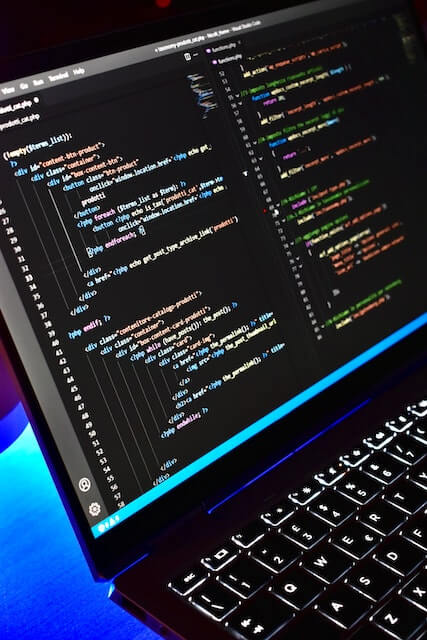
Top Databases for React Native App Development

According to a 2021 report by Statista, 38% of responders consider React Native to be one of the most popular mobile development technologies. When it comes to using React Native databases, developers have different options. The most popular database choices for React Native are SQLite, Firebase, and MongoDB. However, there are some other less known alternatives on the market. In this article, we will take a closer look at numerous React Native database choices and help you decide which one will perfectly suit your project.
Before selecting the right technology stack, it is crucial to estimate such factors as memory handling, data complexity, data conflict management, and concurrency. As the mobile app’s use heavily relies upon the capacities of the chosen Reach Native local database, reviewing its technical characteristics beforehand is key to the project’s effective implementation. Below, you can find the 6 most commonly used Reach Native database options.
MongoDB
MongoDB is a powerful document-oriented database for React Native that is well suited for mobile app development. It offers multiple benefits over traditional relational database management systems. This implies a more flexible data model, higher scalability, and greater performance. MongoDB’s flexible data model enables developers to easily store and query data in any format, including documents, images, and text. These advantages make it an excellent choice for mobile apps that deal with large data sets. In addition, MongoDB’s scalability allows apps to handle a large number of users and perform complex queries.
Firebase
Firebase is a mobile development database for React Native that provides a back-end service for applications. It offers real-time data synchronization, user authentication, and static hosting. Real-time data synchronization is one of the most powerful features of Firebase. It makes it possible to synchronize data across devices in real-time, which is essential for building collaborative applications. Besides, user authentication is another key feature of Firebase. It allows developers to add user authentication to their applications easily. Firebase also offers static hosting, making the deployment of web applications effortless.
SQLite
SQLite is a powerful and compact React Native local database. It is fast, lightweight, and easy to use, making it one of the best databases for React Native. It is suitable for developers who need a reliable database solution that can be easily embedded into their applications. In addition, SQLite is ACID compliant, meaning that it supports the four essential properties of database transactions: atomicity, consistency, isolation, and durability. This ensures that data is always consistent and reliable, even during a power failure or other unexpected shutdowns. What’s more, SQLite can be easily deployed across multiple platforms. This makes it an ideal choice for developers who target their apps on various devices or want to deploy them on devices with different operating systems. Finally, SQLite is free and open source, which makes it an outstanding choice for developers who wish to avoid the costs associated with proprietary database solutions.
WatermelonDB
WatermelonDB is an open-source database for React Native specifically designed for fast and reliable mobile app development. It offers a unique set of benefits, making it an ideal choice for developing high-performance mobile apps. First, WatermelonDB is specifically designed for use with JavaScript, making it easily compatible with existing mobile app development frameworks. Second, WatermelonDB presents a unique data synchronization mechanism that ensures data consistency across multiple devices and platforms. Additionally, WatermelonDB is highly scalable, allowing it to handle large amounts of data without sacrificing performance. Finally, WatermelonDB is constantly updated with new features and improvements, which is an excellent choice for long-term mobile app development.
PouchDB
PouchDB is an open-source JavaScript React Native local database that enables developers to create applications that work both offline and online. PouchDB will store the data locally when the user is offline, allowing the application to work as if it were online. However, when the user is online, PouchDB will replicate the data to a remote database, such as CouchDB. This allows for a seamless experience for the user and provides a backup in case of local data loss. PouchDB is also schema-less, which means it does not require a predefined schema to store data. Another benefit of using PouchDB for mobile development is that it can be used with any backend. This feature enables users to switch backend systems if necessary without having to rewrite the entire application. Overall, PouchDB is a great choice for mobile development as it provides an offline-first experience, is schema-less, and can be aligned with any backend tool.
Vasern
Vasern is new data storage for developing mobile apps that offers several benefits over traditional frameworks. Perhaps the most significant advantage is that Vasern uses a declarative approach to coding. This makes it much easier to read and understand code written in Vasern. Additionally, Vasern offers better performance than traditional frameworks due to its use of a virtual DOM. Finally, Vasern is designed to be compatible with all major platforms, including iOS, Android, and Windows Phone. It makes accessible features such as document versioning, document tagging, and full-text search. With Vasern, you can manage your documents more efficiently.
All things considered
React Native is a popular framework for mobile app development, and there are many great databases to choose from when developing a React Native app. MongoDB, SQ Lite, WatermelonDB, PouchDB, and Vasern are all great choices for a React Native database. To choose the perfect database for your app, consider your app’s specific needs and requirements. For example, MongoDB is a flawless choice for apps that need a lot of data storage and scalability, while SQ Lite would be suitable for apps that need a light, fast, and easy-to-use database. WatermelonDB is an excellent option for apps needing a flexible and scalable database, while PouchDB is the right choice for apps that require an offline-first database. Last but not least, you can opt for Vasern when developing an app that will rely on a fast and lightweight database. Start experimenting with a chosen React Native database to maximize the value of your communication with clients.
nCube builds remote teams of experienced technology professionals specializing in software architecture, development, and design. Interested in building a team of React Native developers? Contact us.
Recommended articles


